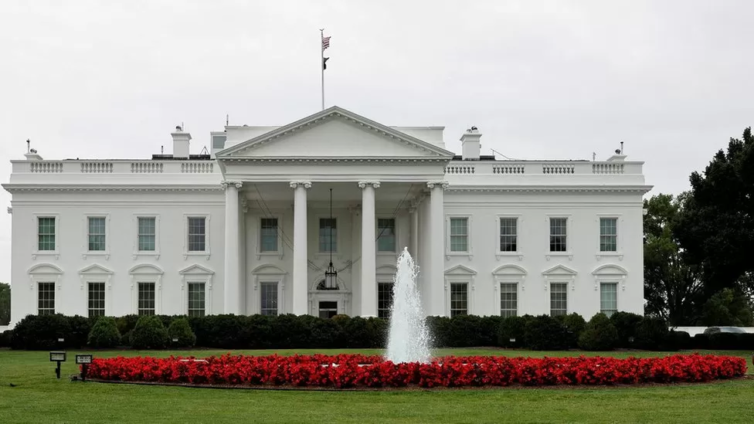The US Secret Service has closed its investigation into the discovery of cocaine in the White House.
It said it had attempted to determine a suspect through fingerprints, DNA traces, and video evidence, but had not been able to do so.
The cocaine was discovered earlier this month in a vestibule leading to the lobby of the West Executive Avenue entrance to the White House.
President Joe Biden and his family were at Camp David in Maryland at the time.
The small plastic bag used to contain the drugs was found in an area which can be accessed by members of the public, and where mobile phones and other personal devices are stored before entering the White House.
After it was first discovered, safety closures were put in place so it could be determined that the substance "was not a chemical or radiological material that threatened the security of the White House", the Secret Service said in a statement.
Tests of the material determined it was cocaine, and further analysis was carried out on the composition of the substance. Advanced fingertip and DNA analysis on its packaging were also carried out by the FBI's crime laboratory.

Meanwhile, the Secret Service continued to investigate how the substance arrived in the White House, reviewing security systems in the day leading up to the discovery of the cocaine.
It produced "an index of several hundred individuals" who "may have accessed" the area where the drug was found.
On Wednesday, the Secret Service received the forensic evidence back from the FBI. This showed it did not have enough DNA evidence for comparison, and had not developed "latent fingerprints".
"Therefore, the Secret Service is not able to compare evidence against the known pool of individuals," it said in a statement.
It added that the surveillance footage had also not been of use, and it would mean trying to single out someone from "hundreds of individuals" who passed through the vestibule - without having any physical evidence to do so.
The Secret Service added that it it "takes its mission to protect US leaders, facilities, and events seriously" and it is "constantly adapting to meet the needs of the current and future security environment".
Cocaine is a Schedule II drug under the Controlled Substances Act, meaning it has a high potential for abuse, according to the US Drug Enforcement Administration.
Latest Stories
-
Gifty Anti inspires young women to rise above challenges at TAF College’s 2025 Freelancers launch
12 minutes -
Police restore calm in Adoagyiri after violent clashes between youth groups
20 minutes -
Obstructionist behaviour must not be tolerated – Prof Kwesi Aning warns
33 minutes -
Wontumi alleges intimidation and threats amid raid at his residence
34 minutes -
GREDA urges pricing discipline as cedi strengthens against dollar
36 minutes -
Ghana scales up fight against obstetric fistula with free surgeries in five hospitals
36 minutes -
“We step in when communities need us”- Agro Crown West Africa Director on borehole commissioning in Ofosu
37 minutes -
NUGS launches National Youth Festival 2025 with strong stakeholder support
37 minutes -
Adansi Rural Bank launches new product for artisans and MSMEs in its catchment
51 minutes -
My accounts were frozen without prior knowledge; I couldn’t pay my children’s fees – Wontumi
1 hour -
CEO of Margins ID Group highlights Ghana Card’s role in healthcare at ID4Africa Summit
1 hour -
2024/25 GPL: Accra Lions on the cusp of relegation after 3-1 loss to Hearts
2 hours -
GETFund warns public against fraudulent scholarship scams
2 hours -
Ivan Bruce-Cudjoe launches bid for GBA presidency, promises to reset Ghanaian boxing
2 hours -
If NPP doubts security services, they should go to court – Deputy Interior Minister
2 hours

